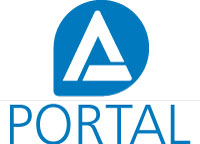Fire
If you discover a fire:
- Immediately sound the fire alarm by activating nearest break glass fire alarm
Call 999
Immediately evacuate the area. Close door to area to contain fire and go to the Assembly Point on the central lawn and report to ICO confirming location of fire and whether 999 has been called or not.
On hearing the alarm, staff should evacuate the building through the nearest safe route and convene at the Assembly Point on the central lawn. Close non-escape doors as you leave.
After Fire:
- Do not enter buildings until authorised to do so
Responsibilities
Employee
- Every employee should be aware of the location of fire extinguishers and break glass fire alarms and be familiar with the fire alarm system.
Building Wardens
- Check their area of the building for proper evacuation in case of fire and report to ICO
Fire drills are held once a year. Advance notice is given only to those persons involved in critical processes, so staff should regard any sounding of the fire alarms outside the times listed below as a real alert.
Fire System Testing:
The fire alarms are tested between the hours of 0745 and 0815 every Monday morning.
In addition, a brief (30-40 seconds) burst of the evacuate signal is given every Monday morning between 0930 and 1000.
Staff are not required to take any action at these (but only these) times.
Medical Emergencies
Serious Injury
For serious injuries or incapacitation:
- Dial (9) 999 and give the following information to the dispatcher:
- Shout for assistance.
- Ensure someone has contacted Security by calling ext 222. This is for 2 reasons, firstly to ensure Security send First Aiders to your location to assist with the casualty and secondly so Security can guide the ambulance to your location on arrival.
- Ensure you are not endangering yourself as you try to help the casualty.
- Ask someone to retrieve nearest defibrillator if it is suspected that there is no heartbeat (defibrillator will not shock the person if a heartbeat is detected, they are designed to be used by people with no training).
- If someone is available to help, ask them to stand outside building and guide paramedics to the correct location.
ALL incidents should be reported using the '
Report Incident' portal link, recording date/time and location of the incident, those involved and a brief description.
Minor Injury
- Please ring 500 or 222 and advise them of the injury, your location and assistance required.
- Depending on the severity of the injury, you can be treated where you are or in the First Aid Room, located in the Villas. If the injury is beyond the expertise of a First Aider, they will refer as necessary. Remember to record the incident details in the accident record book (held at reception)
ALL incidents should be reported using the '
Report Incident' portal link, recording date/time and location of the incident, those involved and a brief description.
Mental Health
If you are experiencing any type of mental health crisis and/or worsening of an existing mental health issue, follow the table below to contact a Mental Health First Aider at Royal Observatory Edinburgh.
First Aid
Please call 500 on the nearest telephone or call 222 (Lodge) ask for First Aid Assistance.
If you require treatment for an injury sustained at work, contact your nearest first aider (details below), or ring security on 222 - they will contact a first aider for you, or direct you to the first-aid room for treatment. If the injury is beyond the expertise of a first aider, they will refer as necessary.
Reporting a Near Miss / Incident
All Safety, Health and Environmental incidents, including fires and near misses - incidents that have not resulted in injury - must be reported to both Line Management and the SHE Advisor. All incidents should be reported using the 'Report Incident' portal link below, recording the date/time and location of the incident, those involved, and a brief description of the incident. In order to facilitate subsequent investigation it is important that following an incident or accident, equipment, machinery etc., should be left untouched unless by so doing a further hazard would be created.

Staff Working Alone
Lone working is inherently more hazardous than normal procedures and should only be undertaken when there is no alternative and only then if it is safe to do so. Staff wishing to work alone should discuss the risks with their Line Manager/Supervisor and agree a safe system of work. If there are any foreseeable hazards they should be noted down along with the control measures needed to combat the risk. Line Managers/Supervisors should be aware of the requirement to provide adequate supervision under these circumstances and all staff should note that performing certain procedures alone is forbidden. These include:
- Entry into confined spaces
- Working with ladders which cannot be secured and require footing
- Work with certain substances which are hazardous to health
Apparatus left working unattended
If it is necessary for specialist electrical apparatus to be left working unattended, a label indicating the shutdown procedure and who to contact in an emergency should be displayed. Suitable labels can be obtained from the Safety Advisor.
Prior to departing the designated area, it is essential to ensure the proper securing of any hazardous equipment for safety measures
